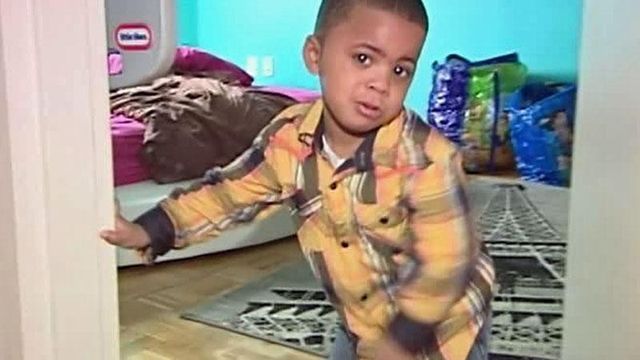Snoring babies at risk of childhood problems
Snoring infants and toddlers have a higher risk of behavioral difficulties later in childhood, a new study finds.
Posted — UpdatedSnoring infants and toddlers have a higher risk of behavioral difficulties later in childhood, a new study finds.
The parents of 2-year-old Unique Harper had to get him help for snoring to help his behavior.
"He would be so cranky, and he would always want to hit his brothers," his mother, Hope Dukes, said.
Unique's aggressiveness and irritability led Dukes to take him to a specialist. Doctors did a sleep study and found that he had severe sleep apnea.
"They said he stopped breathing 25.5 times an hour, which was very shocking to me," Dukes said.
He also snored and breathed through his mouth. Doctors call these symptoms sleep-disordered breathing, or SDB.
A new study published in the Journal of Pediatrics found that children with SDB are at a significantly higher risk of behavioral problems by the time they are 7 years old. They're more likely to be inattentive, aggressive and impulsive and have emotional problems including depression and anxiety.
"If someone's not breathing correctly, it will cause someone to have disruptions in their sleep. It will make them more restless," said Dr. Pakkak Ngai, a pediatric pulmonologist with Hackensack University Medical Center in New Jersey.
An estimated 10 percent of children snore and about 4 percent have sleep apnea. That condition is often caused by enlarged tonsils or adenoids.
Obesity is another common cause of SDB.
Unique had his tonsils and adenoids removed in December. Since then, he's started sleeping through the night, and his development is back on track.
"He's happy. He's talkative. He runs and hugs everyone. He's just a very happy child," Dukes said.
Copyright 2024 JAMA. All rights reserved.





